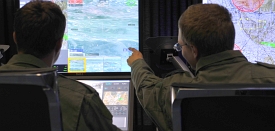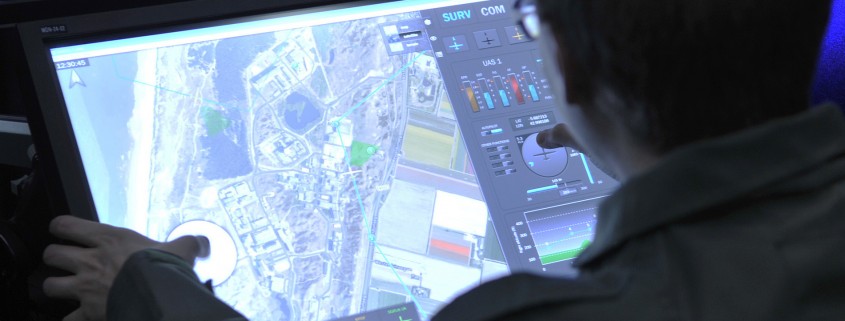
UAS training
NLR assessed the feasibility of a training academy for operators of unmanned aerial vehicles, which are on the brink of a major breakthrough, according to aviation analysts.
The potential applications of unmanned aerial systems (UASs) are growing exponentially, not only for military operations, but especially for civilian purposes. UASs are already being deployed by corporations and governments for the inspection of pipelines and wind turbines, for instance, but also for monitoring football matches and other major events, and for the early detection of forest fires. The key benefit of UASs is that their sensors can be flexibly deployed in poorly accessible or hazardous locations. UASs are better suited to such tasks than cranes, for instance, or manned aircraft and helicopters.
As the market for UASs has grown, there has been an increasing need for regulation, safety standards and training. NLR conducted an economic and substantive feasibility study for the proposed establishment of a training center for UAS pilots. The study, concluded in 2012, confirmed that an academy of this kind is feasible.
The project, dubbed Unmanned Aircraft Systems Training Academy (UTA), encompasses all aspects of UAS operations. These may be subdivided into two categories: the one entails flying over built-up areas, while the other covers operations over less risky terrain. The trainees must be comprehensively instructed in both the theoretical and practical aspects of working with unmanned aerial vehicles. This program will include simulator training as well as flights with real UASs.
The study was conducted in collaboration with the World Class Aviation Academy, AEC Air Support, the Midpoint Brabant regional development organization, and Gate2. The latter party was involved because the proposed location for the new academy is the town of Rijen, in the Dutch province of North Brabant. Gate2 is teaming up with businesses and knowledge institutes to establish, among other things, new aviation-related commercial and innovation projects. One example is the Rotary Wing Training Center that opened in 2011 on the Gate2 business park next to the Gilze Rijen airbase. Chinook technicians from around the world are also trained here in close cooperation with Boeing. Other innovative projects focus on new materials, digitized maintenance, simulation technology and other aviation-related developments. NLR participates in a number of these projects.
The UTA will initially focus on training for civilian UAS operations, including those in the safety domain. Training for military operators will later be included in the curriculum.
NLR is the Netherlands’ leading institute for conducting feasibility studies of the kind, having gained extensive experience in the training of police officials, for instance, but also in the technical and regulatory aspects of UAS operations. NLR’s expertise in these fields also extends beyond the national borders to markets elsewhere.
Also visit our Modelling and Simulation capability page.


